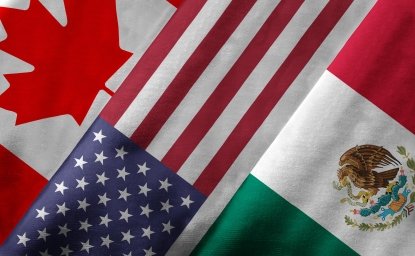Modernizing the North American Free Trade Agreement (NAFTA) is beginning with a “sprint.” The three governments have agreed to an accelerated set of negotiating rounds to see if they can forge an updated arrangement for trade between Mexico, Canada and the United States by early 2018. It will be a tough dash, with immensely important stakes.
The early “sprint” is because Mexico’s July 2018 presidential and congressional elections close the political window for approval of an agreement in Mexico by early 2018. Delay will prolong the uncertainty, including on what positions a new Mexican team might take. If the “sprint” does not work, the negotiations will shift to a jog, until after a new Mexican president enters office in December 2018.
The opening statements by the lead negotiators, especially by the U.S., and the flurry of news reporting on the first round negotiations, however, remind us that the “sprint” faces serious challenges rooted in conflicting objectives and complex issues.
The primary objective, however, should be that the negotiations not fail in a way that would endanger the estimated 14 million U.S. jobs supported by $1.2 trillion in trade between Mexico, Canada and United States. Unlike negotiating a free trade agreement with a first-time partner, U.S. businesses and farmers have built massive networks of commercial and investment relationships across North America under NAFTA, by which companies are producing and selling things together across the borders of the continent to great mutual benefit.
Read the full article on The Hill...






